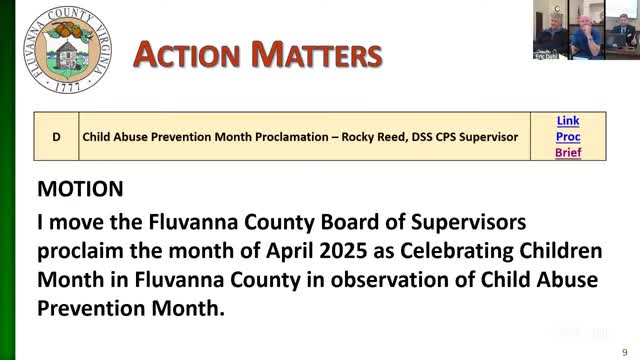Article not found
This article is no longer available. But don't worry—we've gathered other articles that discuss the same topic.
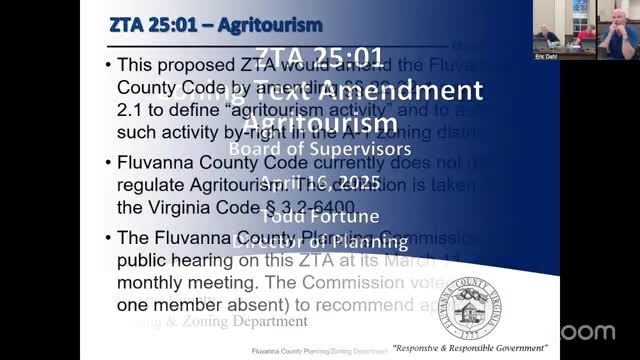
Board okays agritourism as by‑right use in A‑1 zone; county mirrors state definition
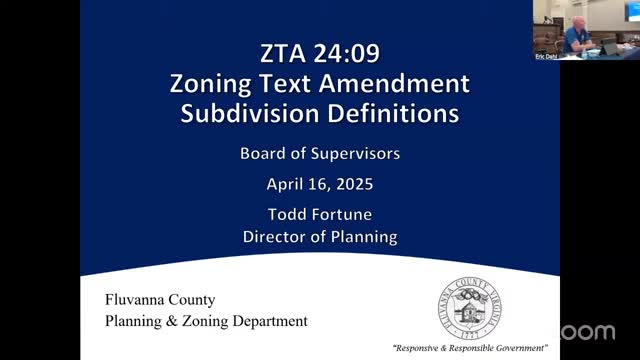
Board approves zoning change to limit minor subdivisions to five lots from a parent tract
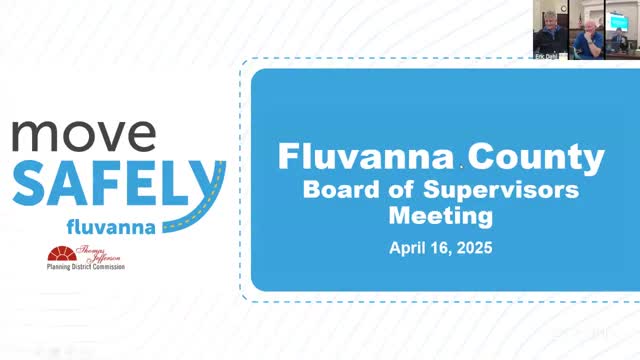
Move Safe Blue Ridge: Draft safety action plan presented to Fluvanna supervisors, highlights high‑injury network
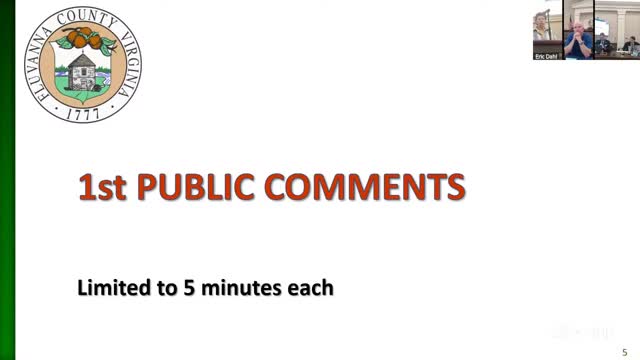
Residents urge Fluvanna County to audit land‑use tax breaks, call for public forum
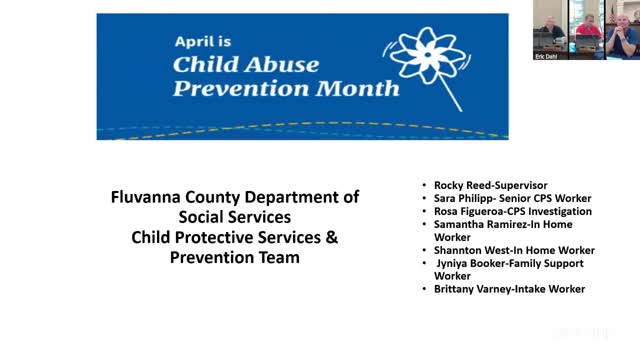
Social‑services staff brief supervisors; board proclaims April child‑abuse prevention month
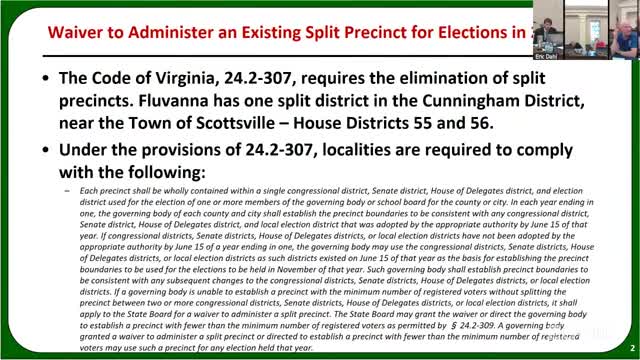
Board approves annual waiver to administer a split precinct for 2025 elections
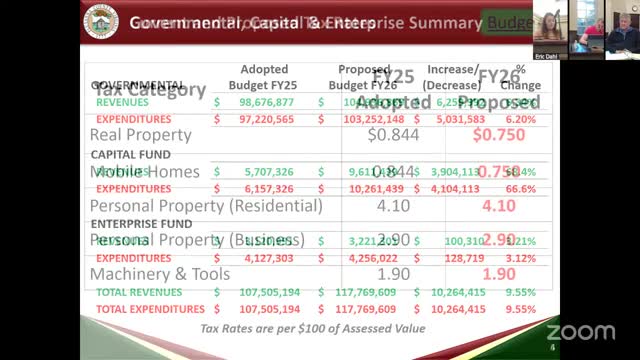
Board hears FY26 budget, CIP totals and heated debate over Fork Union sidewalk cost estimates
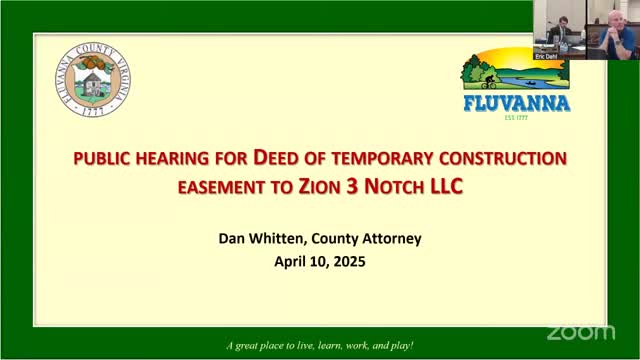
Board approves temporary construction easement for convenience store utility work off U.S. 250
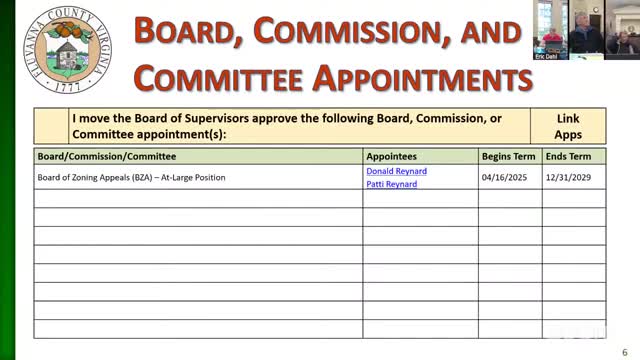
Board recommends Donald Raynard to circuit court for Board of Zoning Appeals vacancy
